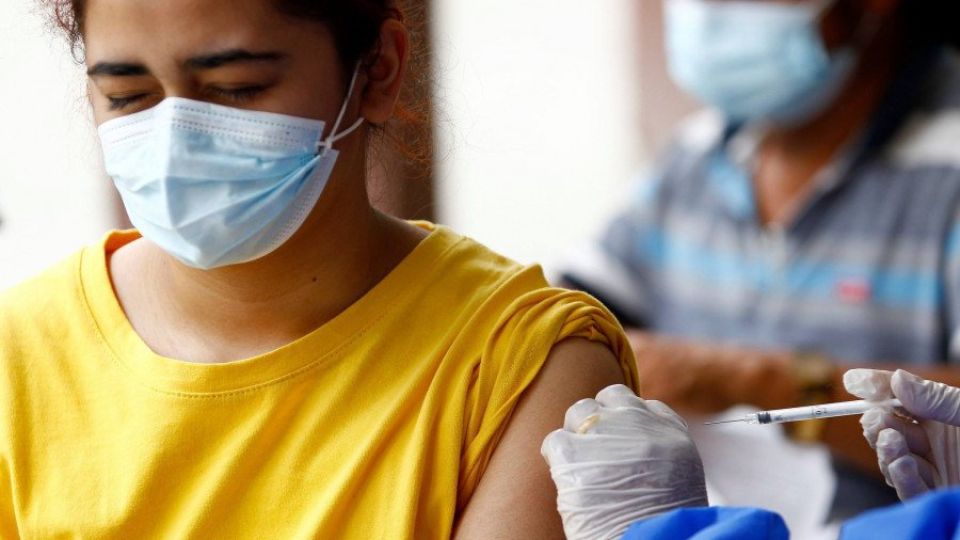January 18, 2023
KATHMANDU – Amid rising risks of a new surge of Covid-19 infections in the country, Nepal’s Ministry of Health and Population has said that it has requested for an additional 1.5 million doses of Pfizer-BioNTech’s bivalent vaccine with the COVAX facility.
Officials said that a new order for the vaccine doses has been placed keeping in mind a possible outbreak of a new variant of the virus in the country.
“We have requested for an additional 1.5 million doses of Pfizer-BioNTech’s bivalent vaccine with the COVAX facility,” Dr Surendra Chaurasia, director at the Logistic Management Section Under the Department of Health Services. “The previous order of 1.5 million doses will arrive on February 3.”
Pfizer-BioNTech’s bivalent vaccine is the only jab that has got an emergency use approval from the Drug Advisory Committee. A meeting of the committee held last month granted emergency use approval to the bivalent vaccine.
The bivalent Covid-19 vaccine includes a component of the original virus strain as well as a part of the Omicron variant to provide a broad protection against Covid-19.
The vaccine is called bivalent Covid vaccine as it contains two components—original virus strain and Omicron BA.4 and BA.5 sub variants. Doctors say a bivalent Covid-19 vaccine may also be referred to as an “updated” Covid vaccine booster dose.
Both orders are part of the 9.2 million doses promised to Nepal by the COVAX facility, the United Nations backed international vaccine sharing scheme. The facility has supplied around three million doses so far.
Officials at the Department of Health Services said that the bivalent vaccine doses were supposed to be delivered in November but due to the failure to secure emergency use authorisation in time, the supply got delayed. Christmas and New Year have further delayed the supply, according to officials at the Department of Health Services.
Nepal, so far, has used Covid vaccines developed by University of Oxford and pharmaceutical giant AstraZeneca, manufactured in various countries of Europe, India and Japan, the Chinese Vero Cell, and the US-made Janssen, Moderna, and Pfizer-BioNTech.
“We will use the bivalent vaccine doses as a booster,” said Chaurasia.
Months ago, the Health Ministry had decided to administer the second booster shots to vulnerable groups—elderly people above 55 years old, those having compromised immunity and frontline health workers, but their vaccinations haven’t yet started.
Experts say vaccination is the only reliable way to prevent severity and deaths from coronavirus infections and suggest administering second booster shots at the earliest.
The number of Covid-19 infections is very low in the country, although the infectious disease experts are concerned about a possible new surge in the coming days. They say that there is every chance of a virus variant seen in any part of the globe to spread in the country due to the high mobility of Nepali people. Nepal has reported almost all variants and sub-variants of Covid-19 detected in the world.
“Risks of a new surge of infections have increased due to a surge in new cases in several countries, including in neighbouring China,” said Dr Sanjaya Kumar Thakur, spokesperson for the Health Ministry. “We hope that we can minimise impacts of the infections if we administer the booster shots at the earliest.”
Several studies, including the one carried out in Nepal, show that immunity achieved from vaccination or infection wanes after six months of vaccination or natural infection.
According to Thakur, Nepal will not have a shortage of vaccine doses, as around six million doses, offered to the country months ago, are yet to be received from the COVAX facility.
So far, 12,020 Covid-related deaths have been reported in Nepal, according to the official count. The Health Ministry said that 22,324,933 people, or 76.5 percent of the total population, have been fully vaccinated. The number of people who have taken booster shots stands at 7,972,791 as of Monday.


